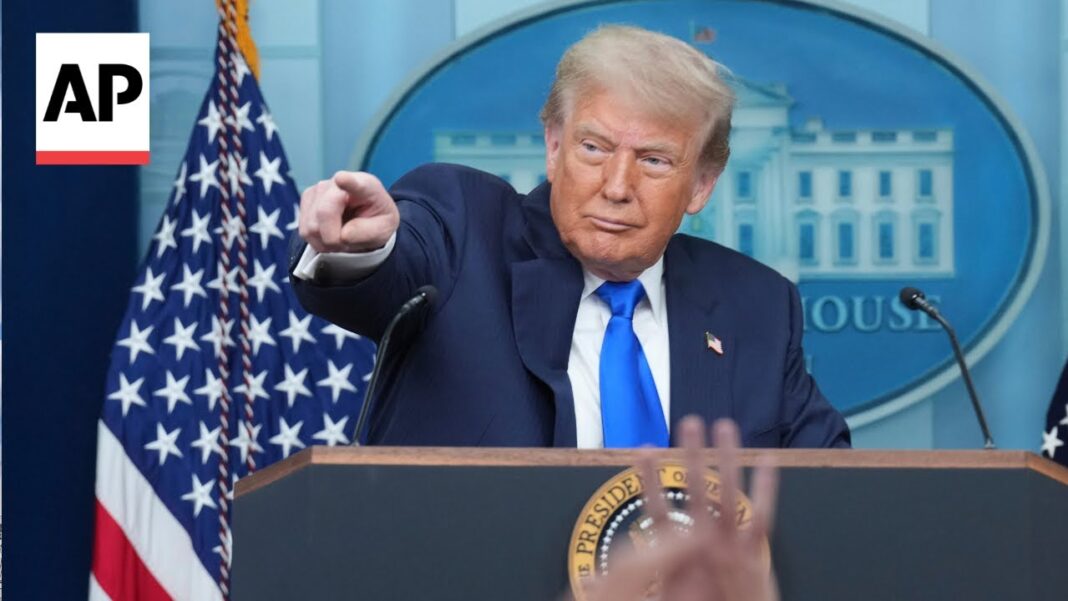Significant disputes remain ahead of the Senate’s expected marathon amendment session known as a vote-a-rama.
The Senate advanced the latest version of the One Big Beautiful Bill Act in a procedural vote on June 28, clearing the way for floor debate on the substance of the sweeping megabill and moving Republicans one step closer to delivering on key parts of President Donald Trump’s second-term agenda.
The bill advanced in a vote of 51 to 49, with enough Republican holdouts joining party leaders to avoid the need for Vice President JD Vance’s tie-breaking vote and to push the measure forward despite lingering concerns about some of its provisions.
Sens. Susan Collins (R-Maine) and Josh Hawley (R-Mo.), two pivotal holdouts, said Saturday that they would vote to advance the megabill, pointing to revisions unveiled by party leaders on Friday that addressed some of their earlier objections.
Collins said she was supporting the motion to proceed out of respect for Senate Majority Leader John Thune (R-S.D.), who has pressed for the bill’s swift consideration, but warned that she still has substantial reservations and intends to introduce several amendments in an effort to reshape the legislation.
Hawley, who had previously objected to proposed Medicaid cuts, told reporters Saturday that he would back not only the motion to proceed but also final passage of the bill. He credited his decision to new language in the updated bill that delays implementation of changes to the federal cap on Medicaid provider taxes—a provision he said would ultimately bring more federal funding to Missouri’s Medicaid program over the next four years.
The provider tax, or provider assessment, is a fee states charge hospitals to help fund Medicaid. While the House bill kept the federal cap at 6 percent of providers’ revenue, the Senate version would lower it to 3.5 percent—but the reduction would be phased in gradually. Hawley and several other Republicans warned that cutting the cap too quickly could strain hospitals and reduce Medicaid coverage, and said the Senate’s delay of those changes was key to winning his support.
Sen. Tim Sheehy (R-Mont.), who had threatened to vote no, agreed Saturday to support the motion to proceed after receiving assurances from Republican leaders that Section 50301—a provision directing the Interior Department to sell certain federal lands—would either be removed through a floor amendment or struck from the bill by the Senate parliamentarian under the Byrd Rule if deemed noncompliant with budget reconciliation rules.
The controversial language, championed by Sen. Mike Lee (R-Utah), would require the Interior Department to identify between 0.25 and 0.50 percent of Bureau of Land Management lands for sale, focusing on parcels near developed areas suitable for housing. Protected lands like national monuments and wilderness areas would be excluded, and sales would be limited to areas within five miles of towns with at least 1,000 residents. Though narrower than earlier proposals rejected by the parliamentarian, the provision remains contentious, drawing warnings from conservation groups and lawmakers such as Sheehy, who said it could set a dangerous precedent for privatizing public lands.
Sens. Rand Paul (R-Ky.) and Thom Tillis (R-N.C.) voted no on the procedural motion, underscoring ongoing divisions within the GOP. Paul objected to the bill’s provision raising the debt limit by $5 trillion. Tillis said he cannot support the bill because it contains significant changes to Medicaid that would be “devastating to North Carolina.”
Saturday’s successful procedural vote followed the release of an updated version of the bill on June 27, which made multiple changes to comply with Senate reconciliation rules and to address disagreements among Republicans, though significant disputes remain ahead of the Senate’s expected marathon amendment session known as a vote-a-rama.
Trump, during an event at the White House on June 26, highlighted the tax cuts and immigration funding efforts included in the bill, describing it as “one of the most important pieces of legislation in the history of our country.”
The legislative package will “secure our borders, turbocharge our economy, and bring back the American dream,” the president said.
White House press secretary Karoline Leavitt said earlier that day that Trump expects the bill to reach his desk by July 4, and Thune has set the same deadline for the Senate to pass it.
By Tom Ozimek







